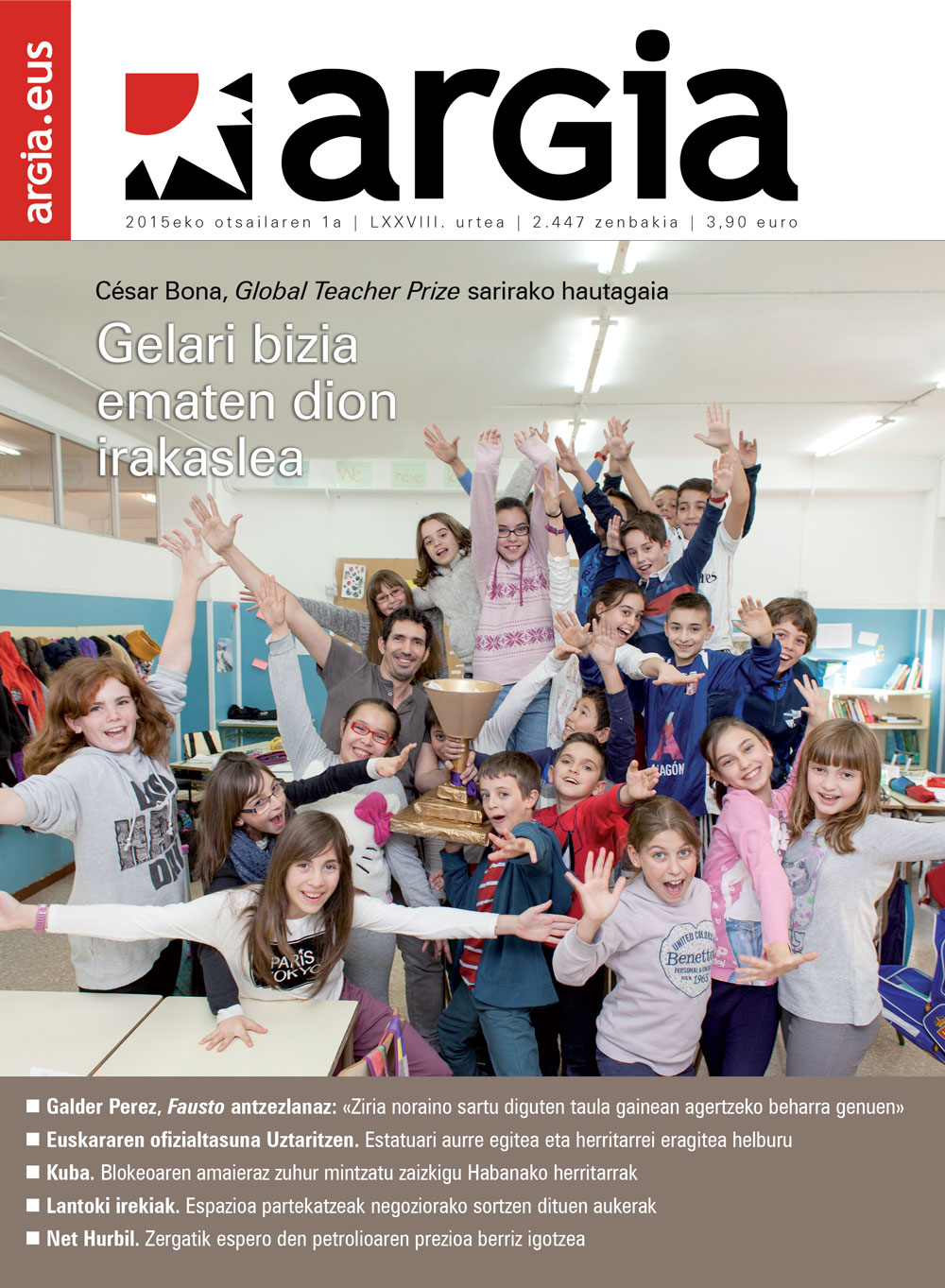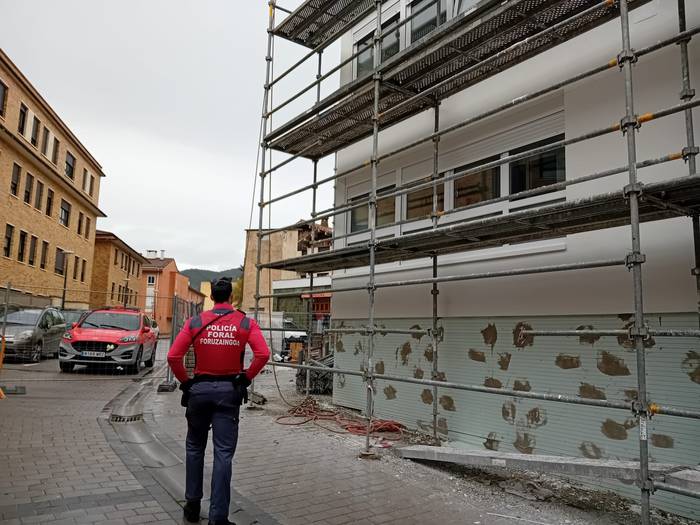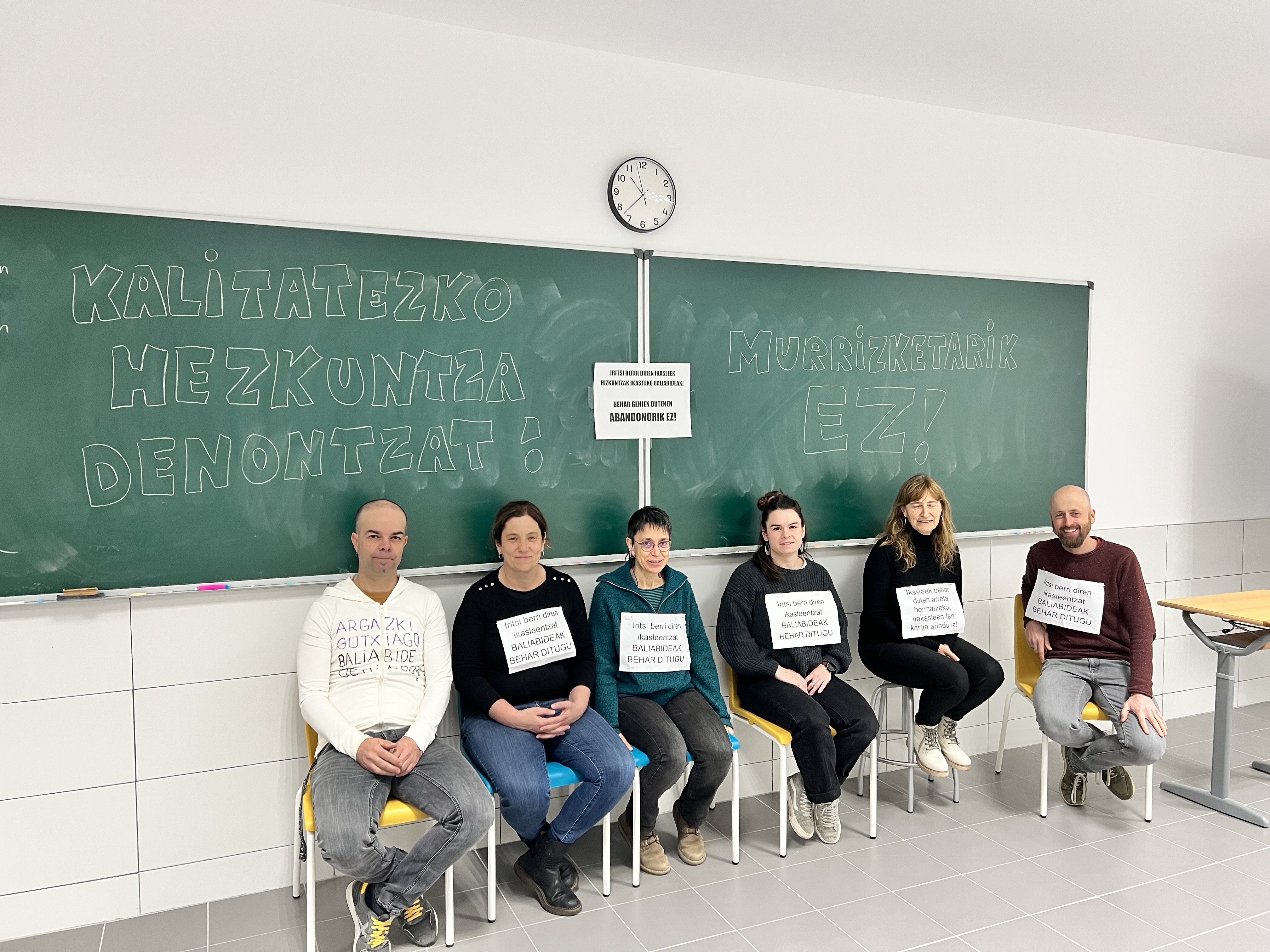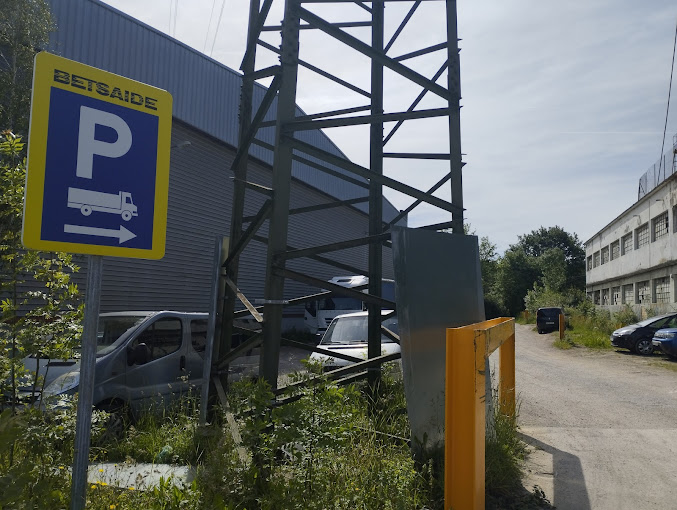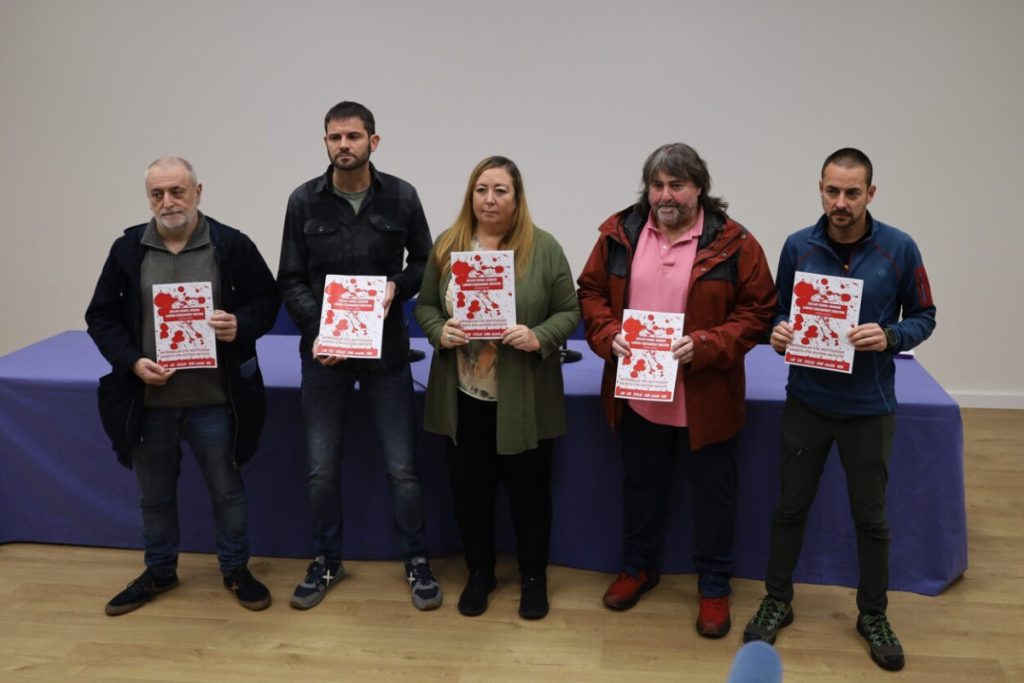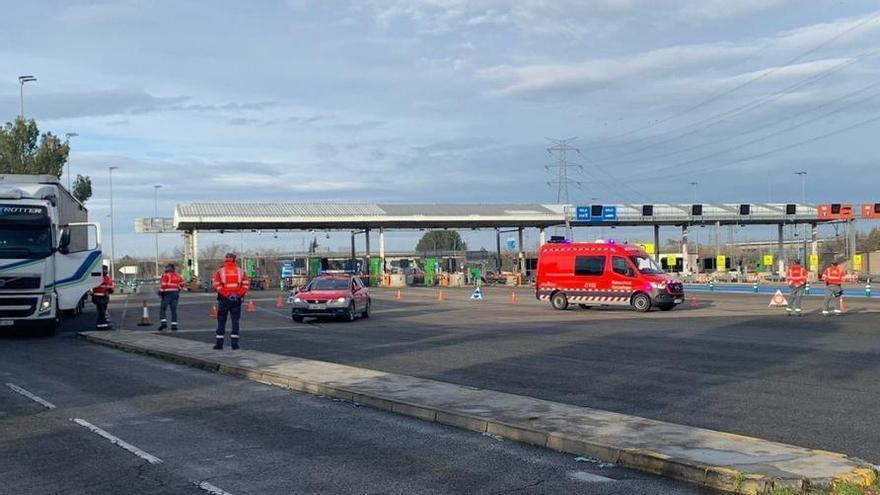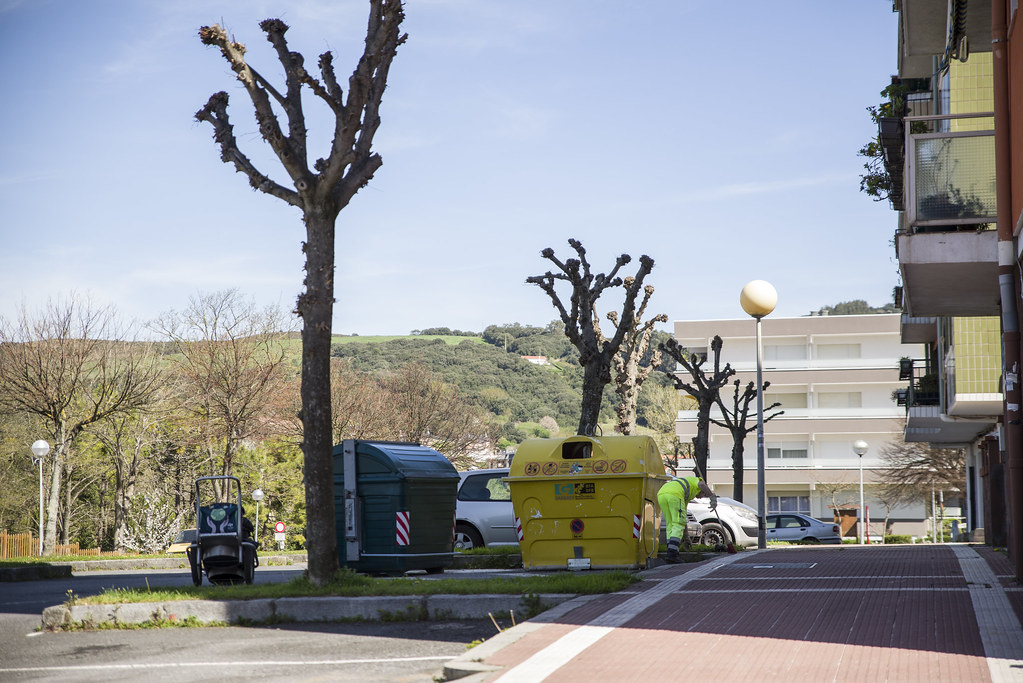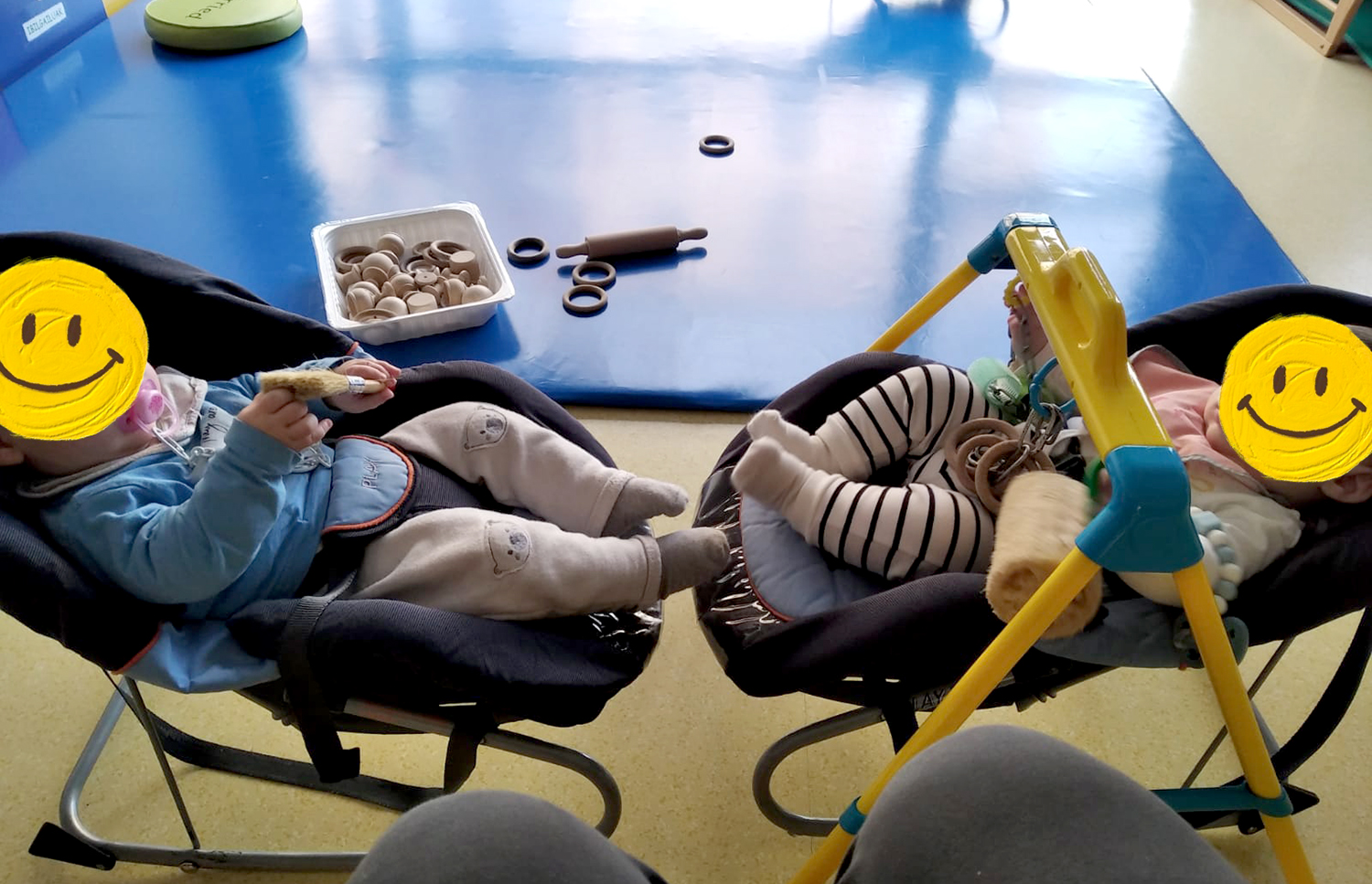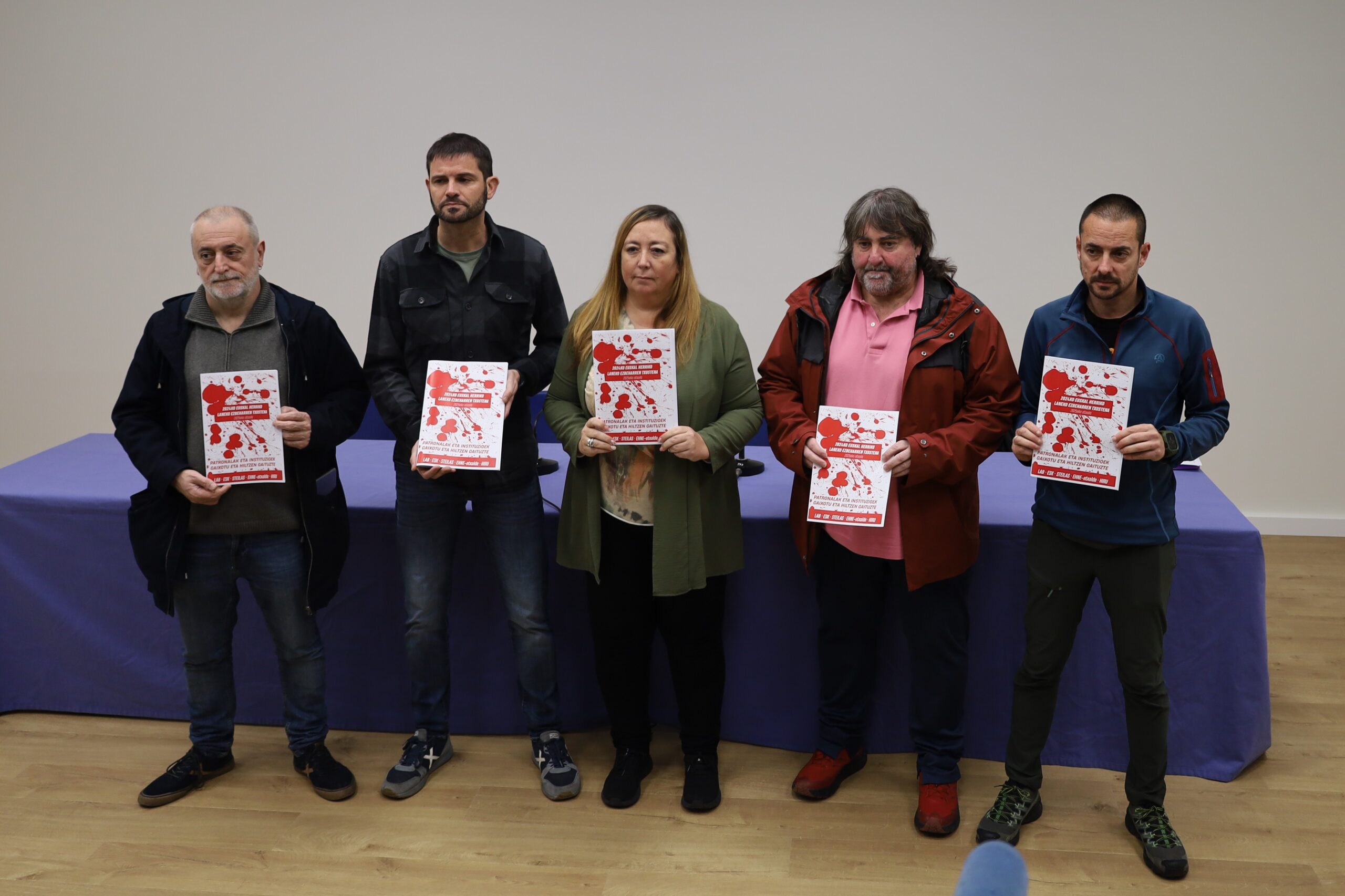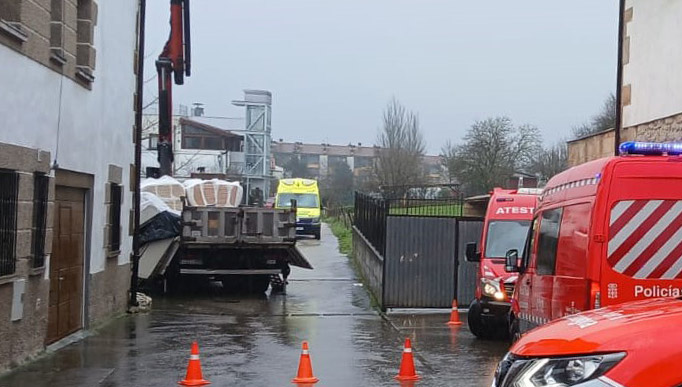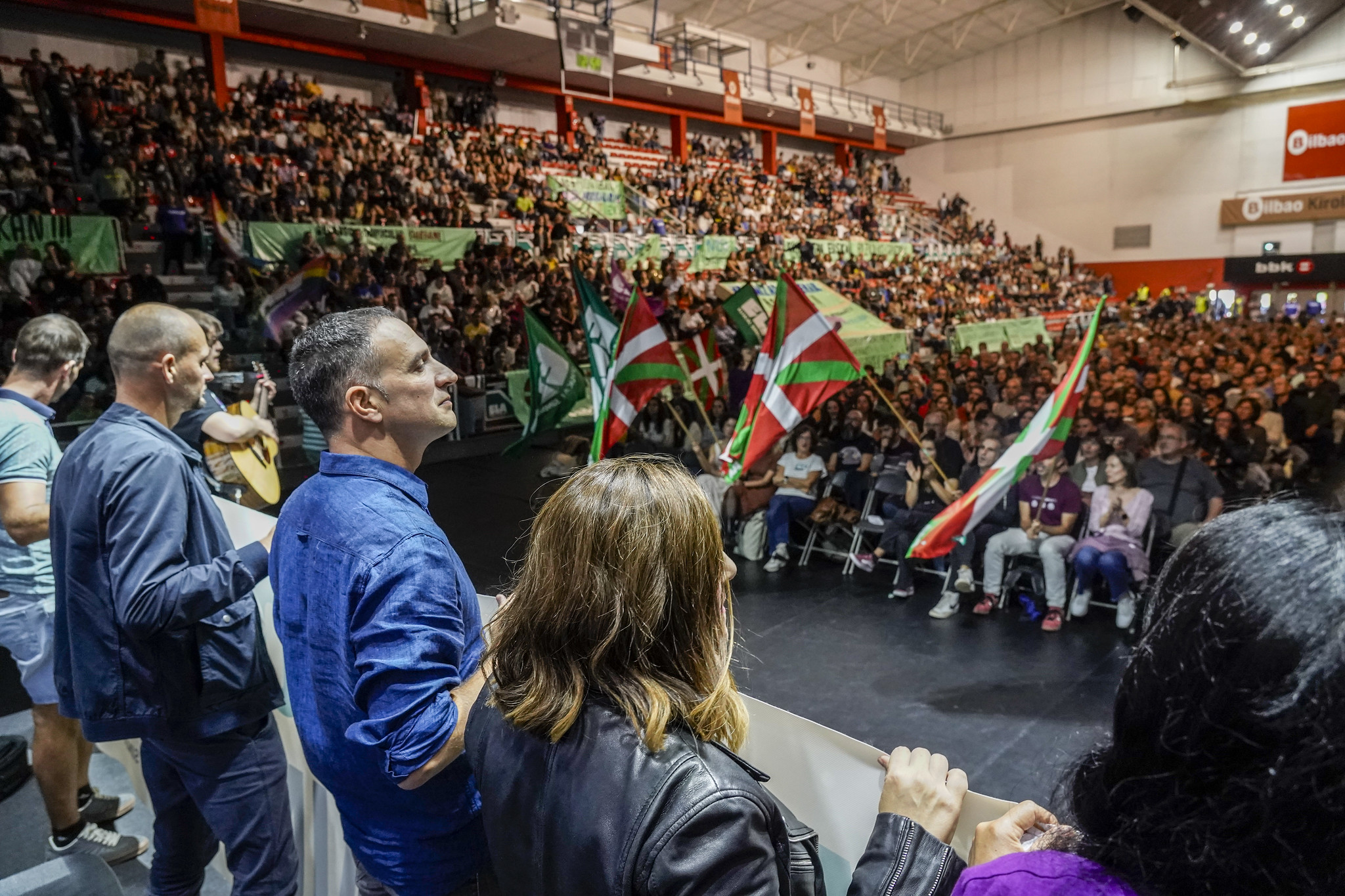Sharing space for developing collaborative ideas
- A room of ten tables, with a person working with a computer with internet access at each table, next to the phone. It wouldn't be strange if every one of those who work in it wasn't a small entrepreneur, entrepreneur or freelance worker, sharing space. This work model is called coworking and goes beyond sharing space.
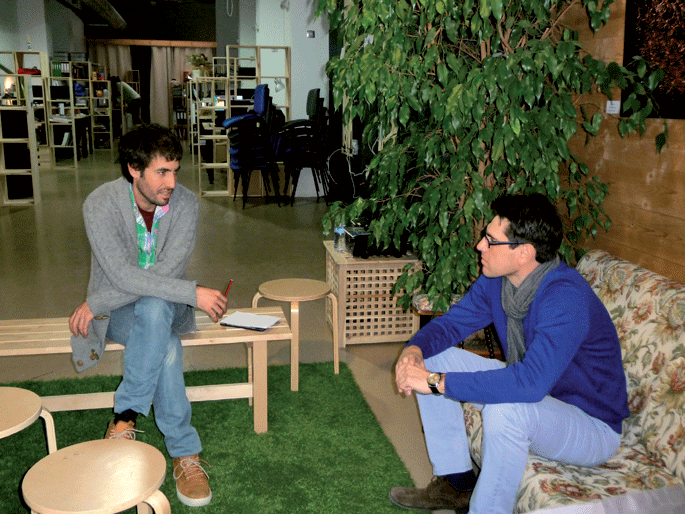
Coworking originates in San Francisco (USA). United States ), where the first such space was installed in 2009. It has since expanded all over the world and in recent years has also made its way into our environment. An example of this is the inclusion of Pamplona in a survey conducted in 2013 by the Coworking Spain association between cities with many coworking.
The Optimus Coworking, for example, opened its doors that same year, but after a year it was small and with the transfer it took a qualitative leap last year. It is currently in the center of Pamplona and is called the Fab Lab Coworking. José Ignacio Cenoz works at the company Crealider. He founded the company in 2010 and until his arrival in coworking, he worked from home: “I was lacking in the work environment, the people who, like me, were struggling to get their company and their brand moving. In coworking you have people going in the same way, you find synergies, collaboration, exchange of contacts, clients, references and practical information.” It is very much appreciated that there are people who have the same problems and joys.
“The work I do here I can also do at home, but the environment engages you. It counts when the neighbor gets angry and when it succeeds. You also want to have something good to tell,” says Agustín Cabanillas, head of the company Don Policy de Zarautz. Besides getting the concentration, the economic aspect stands out, because if you were to rent an office in the village, you would have to pay a lot more. “If you want to undertake, at first you can’t have a lot of spending, meet people, see that your project is going to go ahead and until it gets underway it can take two years and you can’t spend 1,800 euros a month.” It recognises that if it had been expensive it would not have been immersed in the working world of coworking, but this year it will be two years in the Zarautz Offices and pay around EUR 90 per month.
Spaces for collaboration
Coworking is open spaces, both in appearance and in relationship, and at the very least it is expected, you can create conversations about the work that is being developed itself. We've witnessed this at Fab Lab Coworking, 20 minutes after the Cenoz meeting, when two other space members have joined the conversation to inform us about the projects being developed. It could therefore be thought that relations and synergies arise between them with the same naturalness.
“We try not to compete with each other in space. The need for a company can be met by another coworking professional,” explains Cenoz. And it's the partner who runs that relationship. “I am not an expert in accounting and if a client tells me that he needs someone to take care of this field, I tell him that here I will introduce him to the person who manages these issues. Every day I work with him and know what he does, I trust him.”
Luis Arrieta Fab Lab, manager and user of Coworking goes further in the search for synergies: “We try to change the way we understand the work and that a customer can create a chain of work. For example, if I develop a project for an optics, that the direction of the work is done by the Coworking Partner, and as we have brought the client to us, that Cenoz analyzes the management of social networks and that another member takes care of the accounting. Sometimes we get it and sometimes we don’t.”
Sometimes new projects arise among people who work in the same space. Cenoz explains that if someone has an idea, they can give what is missing for this to be completed: “From this point of departure, new businesses have been created here and are now developing. And there are more general business ideas so that together we can create a new business line or company.”
Looking outside
These models organize various activities to relate and expand networks, such as breakfasts and presentations of their projects. They also work with eyes outside and use the contacts of their members to do so. These actions may be the source of new projects, such as the English conversation groups that will be part of the Fab Lab Coworking: “Last year it was proposed to us by a contact of Cenoz, with the English academy, and he was not able to carry out the group, but now we will do it with another.” The faculty will take the conversation groups from the English academy to Coworking and in return the members of the space will form a conversation group. They will also do so with the consumption group of the Navarra NGO Ingeniería Sin Fronteras. They have run out of premises and have proposed that the consumption group be organized from Coworking, with the aim of establishing a more sustainable consumption and that the users of the space can pick up the baskets directly. “These types of projects bring added value to space,” says Arrieta.
However, conferences are the most common events to make coworking known. In the area of Pamplona, for example, Esteban Morras, founder of the Navarre Hydroelectric Power Corporation (now Acciona-Energía), recently spoke about the creation, entrepreneurship and the need for renewable energies of the Navarre company. The conferences are open and Morras brought together a large number of people.
Amaia Aragonese met the coworking Bilbao Eutokia thanks to one of these open events: “I did a course and when I was going to start working on my own the approach convinced me, because it pushes the creation and there is a good environment.”
A short time has been running the Es Salud Movement since the Bolueta area, as, although it was founded in 2013, it has returned to its jobs after the maternal leave of September. Asked about the synergies, he points out that he has found it in the most basic, administrative issues of setting up the company, but he has also experienced some difficulties: “You’re looking for synergies in these kinds of places, but if you don’t dedicate yourself to technology, in these times when we live, it’s hard.” When they arrived, they advised him to go to conferences and seminars because people were known, but “they assumed that they already knew what they were talking about and what they were talking about.” As it was new, he was embarrassed to say that he did not understand it, until another entrepreneur, who also works like him in the health field, said he was in the same situation. Since then, he has lost his shame and confessed to us that he has learned a great deal in the last year.
Among his plans for this year is to use these meeting rooms in Bilbao Eutokia, which he knows from the outset, to make companies known.
What do they do?
The perception of Amaia Aragonès is real: coworking, or rather, the workers who work in this work model are very related to the world of technology. Cenoz says that “those of us in these places are used to working with technology, from simple devices like the Smartphone to augmented reality.” It also works in the field of new technologies, as Crealider manages social networks for companies and online communication.
In the documentary Coworkalari that collects the intricacies of the coworking of Bilbao, Paula Garaialde, manager of Bilbao Koworking, said that the most creative sectors can live in the tribe and that other sectors need a space for them in richer places. “That’s one of the differences we should fix. Why do we not have anyone here who has come from the world of banks and who has set up a small company to do something? Or lawyer?” he asks. There are at least lawyers, but perhaps not in the same proportion as designers, programmers, architects, photographers or journalists.
Cabanillas is safe and not a regular co-working sector either. It has 25 years of experience in insurance brokerage, but through Don Policy it offers a new service: an internet platform to direct customers to insurance brokerage specialized in technical branches of insurance. “For example, there is an insurance brokerage specialised in the insurance of caravans and motorhomes. An agreement has been reached with an insurer to secure these products, which promises to allocate a certain number of vehicles over a certain period of time, and in return get a cheaper price on insurance. I, through this specialised insurance brokerage, reach a partnership agreement and return to those who come to assure me of the caravan or the motorhome. I know they have the best price and I don’t waste my time thinking about where to take them.” A year and a half after starting the business, he has made the leap to South America taking advantage of the opportunities offered by the network.
Coworking must adapt to their needs and Aragonese, for example, uses space as the office of its healthcare company: “It offers me a space to talk or talk to customers.” Its objective is to introduce health programs in companies, “because it is very important to introduce physical exercise and good habits in daily life, so that workers have a better quality of life and therefore the performance is better”.
Services
Aragonès has the usual office services that Bilbao Eutokia offers in its open space: table, Internet access, telephone, buzoning to carry out the necessary formalities, possibility of using the meeting room… In addition, it has legal and economic advice and its coordinator channels the relationship with other spaces to solve their dudas.Sin however, each coworking can have other services depending on their characteristics or specialization, such as television.
They offer rates adapted to the number of hours to use: full-day or half-day. It can cost between EUR 90 and 250 per month or so. The possibilities are expanding, so you can book space for a few days or a few hours, as well as rent meeting rooms.
The price and possibility of developing projects differently attracts many of the co-working members, some leave room at the same time as projects are completed and others when the business grows. Aragonese has this purpose: “I want to have my own long-term location and run the management of sports and health programs. At the center I would like to offer pilates, muscle education and yoga. And if it were too big, I would like to be a small space to educate dance professionals.”
Cenoz has had the opportunity to expand her business and hire a collaborator, but rather than abandon coworking, she thought of incorporating the Fab Lab Coworking team: “These types of sites offer flexibility to enter with one, two or three collaborators.”
Cabanillas looks beyond and believes that the future will be built in these spaces: “It’s a mistake to leave a place like this, even having money. When companies start again, everything will be changed, the way we work is over. People are tired of waiting and grabbing themselves.” He is in the coworking of a town and only two people make up the space, but being in a business center, he explained that with people in other offices a relationship similar to that of coworking is created. “I would never have thought that Zarautz had such an opportunity, but when I found it I thought it was made for me. I always say that this is the most New Yorker in town.”
Economists love the charts that represent the behaviors of the markets, which are curves. I was struck by the analogy of author Cory Doctorow in the article “The future of Amazon coders is the present of Amazon warehouse workers” on the Pluralistic website. He researches the... [+]
Buñueleko (Nafarroa) kasuan, 34 urteko gizona makina batean harrapatuta geratu da. Arratzun (Bizkaia), aldiz, garabiak goi-tentsioko linea bat ukitu ostean hil da 61 urteko gizona.
Institutuko giza baliabideak hobetzeko eskatu dute irakasleek, ikasleei kalitatezko arreta eman ahal izateko. Kartelekin eta pankartekin itxaron diete irakasleek lehendakariari. Jaurlaritzako ordezkariek ikastetxeko zuzendaritzari esan diote ez zutela "horrelakorik... [+]
Datorren astelehenean egingo dute espedientearen kontsulta epeko bigarren bilera.
Betsaide enpresan gertatu da, 08:00ak aldera. Urtea hasi denetik gutxienez bederatzi behargin hil dira.
2024ko laneko ezbeharren txostena aurkeztu dute LAB • ESK • STEILAS • EHNE-etxalde eta HIRU sindikatuek aurtengo otsailean. Emaitza larriak bildu dituzte: geroz eta behargin gehiago hiltzen dira haien lanpostuetan.
Jakina da lan ikuskariak falta ditugula geurean. Hala ere, azken egunotan datu argigarriak ematea lortu dute: lan ikuskaritzaren arabera, EAEko enpresen %64ak ez du ordutegien kontrolean legedia betetzen. Era berean, lehendakariordeak gaitzetsi du, absentismoaren eta oinarrizko... [+]









